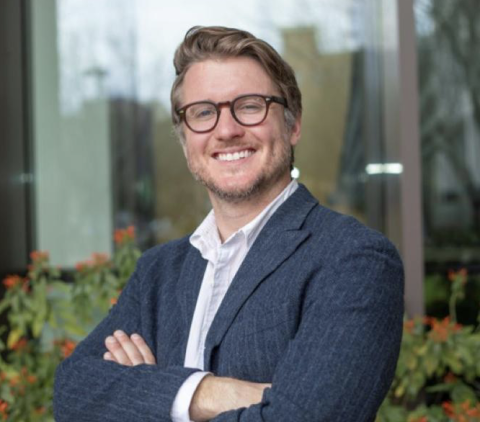
Dr. Samuel Woolley, the William S. Dietrich II Chair of Disinformation Studies and Associate Professor in the Department of Communications has recently been featured in several major media outlets for his expertise in misinformation, disinformation, and the manipulation of communication technologies.
Drawing on his extensive background in disinformation studies, as well as technological manipulations of communication processes, Woolley has provided expert insight on critical issues related to recent instances of content moderation on social media platforms and government censorship of public records.
Speaking to Bloomberg Law, Woolley emphasized the “duty to democracy” owners of major media platforms have when it comes to stopping the spread of misinformation. Commenting on attacks against judges and democratic institutions by the Trump administration, he noted such rhetoric is “straight out of the authoritarian playbook.”
Woolley also lent his insight to The New York Times in an article highlighting the Trump administration’s removal of key historical and educational content from the official White House website. His comment for the article states that, “The idea that suddenly we no longer need oversight or access to the information that allows us to conduct oversight is worrying,” he said. “Getting rid of public records and people who study things like influence operations amounts to a kind of censorship by omission.”
Earlier this year, Meta's controversial decision to halt its fact-checking efforts raised significant concerns. Woolley addressed this issue in a report for ZDF's morning show. ZDF, a major public broadcaster in Germany, is the country’s most-watched television channel. During the interview, Woolley criticized Meta's move, pointing to the negative consequences revealed by research. He highlighted how the removal of fact-checking measures can lead to harmful outcomes for users, including increased polarization, heightened anger, vitriol, loneliness, and depression.
Woolley, who before coming to Pitt served as the director of propaganda research at the University of Texas at Austin’s Center for Media Engagement, offered comments to an article in the Texas Tribune in relation to why he believes Meta plans to move content moderators to Texas in order to end fact-checking protocols. In the article, Woolley was quoted saying, “This decision to move to Texas is born out of both some practicality and also some political motivation,” Woolley said. “The perception of California in the United States and among those in the incoming [presidential] administration is very different than the perception of Texas.”
Dr. Woolley continues to be a leading voice in the national conversation surrounding digital media ethics, platform responsibility, and the impact of technology on democratic institutions.
